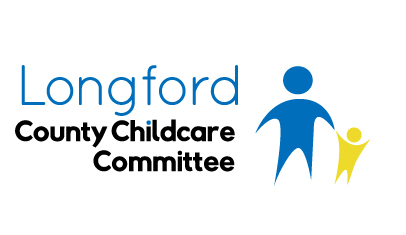Leadership for Inclusion (LINC) Programme
Wins Best Online Learning Experience Award at the 2017 Education Awards
and
Up to 1,000 early years practitioners offered free place on the LINC Programme 2017/18 from today
Friday 2nd June, 2017
The Leadership for Inclusion (LINC) higher education programme for early years practitioners won the award for ‘Best Online Learning Experience’ at the 2017 Education Awards ceremony. The Education Awards recognise, encourage and celebrate excellence in the third level education sector on the island of Ireland.
LINC, which was established in 2016 as part of the Department of Children and Youth Affairs Access and Inclusion Model (AIM), is a Level 6 Special Purpose Award designed to support the inclusion of children with a disability in free pre-school provided under the Early Childhood Care and Education (ECCE) programme. The LINC programme is being funded by the Department of Children and Youth Affairs and is delivered by a consortium, led by Mary Immaculate College, Limerick together with Froebel Department of Primary and Early Childhood Education, Maynooth University and Early Childhood Ireland.
Minister Katherine Zappone welcomed the news, noting that ‘this is a significant achievement given that the LINC programme is new, having only been established in 2016. I would like to take this opportunity to congratulate all those who have worked so hard in getting the programme up and running and also the first intake of students who have engaged so enthusiastically with it. The LINC programme is a key initiative under the Access and Inclusion Model (AIM) designed to empower pre-school providers to deliver an inclusive pre-school experience and to ensure that every eligible child can reap the benefits of quality early years care and education’.
The LINC programme contains online and classroom based sessions in order to ensure a flexible and quality learning experience, enabling early years practitioners in full-time employment to attend this important continuing professional development (CPD) programme.
Last September, the first intake of 900 early years practitioners were funded by the Department of Children and Youth Affairs to undertake the LINC programme. From September 2017, graduates from the first intake will perform a new leadership role of Inclusion Coordinator within their pre-school setting. This will attract an increase of €2 per child per week in the rate of ECCE capitation payable to that setting.
The application process for the 2017/2018 programme closed in early May and all eligible applicants will be offered a place on this Programme today. In all, 978 places will be offered to early years practitioners around the country.
Further information about the LINC programme can be found on www.lincprogramme.ie
ENDS//
NOTE TO EDITORS
The Access Inclusion Model (AIM)
The goal of AIM is to empower pre-school providers to deliver an inclusive pre-school experience, ensuring that every eligible child can fully participate in the Early Childhood Care and Education (ECCE) Programme and reap the benefits of quality early years care and education.
AIM is a child-centred model, involving seven levels of progressive support, moving from the universal to the targeted, based on the needs of the child and the service provider.
Levels 1-3 provide universal support to create a culture of inclusion within pre-school settings, by providing training and information for pre-school providers and parents.
Level 1 works to foster an inclusive culture. In 2016, a new Inclusion Charter for the pre-school sector was published, alongside updated and strengthened Diversity, Equality and Inclusion Guidelines for Early Childhood Care and Education. Training on the guidelines is now being rolled out nationally.
Level 2 works to inform parents and pre-school providers about AIM. The website www.aim.gov.ie contains comprehensive information on AIM and on how to apply for the new schemes and supports. The website also contains the new Inclusion Charter and Diversity, Equality and Inclusion Guidelines for Early Childhood Care and Education, as well as a range of other resources.
Level 3 works to support a qualified and confident workforce. In September, a second intake of 1,000 staff from pre-school settings will be funded by the Department of Children and Youth Affairs to undertake Leadership for Inclusion (LINC), a Level 6 Special Purpose Award. From September 2017, the first cohort of close to 900 programme graduates will perform a new leadership role of Inclusion Co-ordinator within their pre-school setting. This will attract an increase of €2 per child per week in the rate of ECCE capitation payable to that setting.
All targeted elements (Levels 4-7) of the Access and Inclusion Model are operational.
Level 4 provides expert early years educational advice and support. This service is available to pre-school providers and is based within the Better Start Early Years Specialist Service. To date, the team of 50 specialists (in early years care and education for children with disabilities) has completed 5,675 visits providing advice and guidance. To further support this work, 18 additional specialists will take up new posts in July.
Level 5 provides grants for equipment and minor alterations. 185 applications for equipment have been approved, as well as 25 applications for minor alterations grants.
Level 6 provides therapeutic intervention for children who need it: 47 applications have been referred to the Health Service Executive (HSE) for the relevant therapeutic supports.
Level 7 provides additional assistance in the pre-school room and 1,193 applications have been approved to date. In line with emerging best practice to support the integration and independence of children with a disability, AIM does not fund Special Needs Assistants (SNAs). Rather, it provides financial support to the pre-school provider, which can be used either to reduce the adult to child ratio in the pre-school room or to buy in additional assistance to the pre-school room. Accordingly, Level 7 assistance is a shared resource for the pre-school setting.

